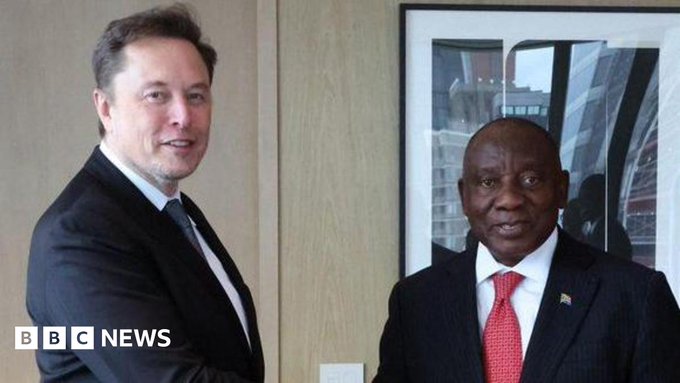WASHINGTON, D.C. – US President Donald Trump has signed an executive order cutting financial aid to South Africa, citing concerns over the country’s new land expropriation law and its decision to take Israel to the International Court of Justice (ICJ) over genocide allegations.
The move marks a significant escalation in tensions between Washington and Pretoria, following Trump’s earlier threats to halt funding.
The White House justified the decision by accusing South Africa of violating property rights through its land reform policy and taking an “aggressive” stance against the US and its allies at the ICJ.
Trump and Musk Criticize South Africa’s Land Law
Trump’s announcement follows growing criticism of South Africa’s land policies, including from billionaire entrepreneur Elon Musk, who was born in the country.
Musk questioned President Cyril Ramaphosa’s administration on X, asking why South Africa had “openly racist ownership laws.”
Why do you have openly racist ownership laws?
Ramaphosa has yet to comment directly on the aid freeze but previously defended the land policy, saying it aims to address historical injustices and promote equitable access to land.
The law, passed last month, allows for land expropriation without compensation under specific circumstances, such as when land is unused or poses risks to public safety.
Land ownership remains a contentious issue in South Africa, where white farmers continue to own the majority of private agricultural land three decades after the end of apartheid.
The government insists the policy is necessary for redressing past inequalities, but critics—including Trump—claim it amounts to property confiscation.
US to Prioritize Resettlement of White South African Farmers
The executive order also directs US officials to facilitate the resettlement of white South African farmers and their families through the US Refugee Admissions Program.
The White House said Washington “cannot support the government of South Africa’s commission of rights violations” and vowed to assist those affected.
Trump has framed the issue as a human rights concern, alleging that South African farmers are being persecuted.
“They’re taking away land and confiscating land, and actually, they’re doing things that are perhaps far worse than that,” Trump said in a briefing.
South Africa’s ICJ Case Against Israel Fuels US Retaliation
The executive order also pointed to South Africa’s role in the ICJ case against Israel as a factor in the decision to halt aid.
Pretoria initiated the case, accusing Israel of committing genocide in Gaza—a move that has drawn sharp criticism from the US government.
Trump’s order claims South Africa has “taken aggressive positions towards the United States and its allies, including accusing Israel, not Hamas, of genocide in the ICJ, and reinvigorating its relations with Iran to develop commercial, military, and nuclear arrangements.”
Ramaphosa Tries to Calm US-South Africa Row
In an apparent effort to ease tensions, Ramaphosa spoke to Musk on the phone on Monday.
His office later released a statement saying the president had “reiterated South Africa’s constitutionally embedded values of respect for the rule of law, justice, fairness, and equality.”
South Africa’s President Cyril Ramaphosa spoke with Elon Musk to ease tensions over a new land law after the South Africa-born tech billionaire joined in the criticism asking on X why Ramaphosa had “openly racist ownership laws”. bbc.in/3CraLYB
While the South African government has yet to issue an official response to Trump’s executive order, the aid freeze could deepen diplomatic strains and further complicate relations between the two nations.




